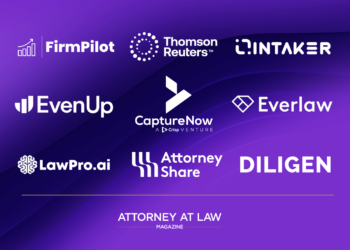Earlier this year, the International Legal Technology Association (ILTA) and InsideLegal released the results of the 2015 Technology Purchasing Survey. The survey went over some interesting numbers for law firms of all sizes, but for the first time ever, the survey also included questions that pertained specifically to technology competence. In particular, it asked what legal firms are doing to ensure that all attorneys and staff members are properly trained to maximize the efficiencies that technology software and tools provide.
Some of the results are quite interesting. Less than 50 percent of the 184 firms surveyed reported that they are developing new technology training models and delivery mechanisms to better suit the needs of end users. Twenty-four percent of firms reported that their law firms are not addressing the issue of technology competency at all. The lowest figures are seen from small firms (firms with 1-49 attorneys). Sixty-three percent of small firms surveyed reported that their firms had no training programs whatsoever in regards to technology.
The fact that smaller firms tend to place less importance on technology training than larger firms isn’t too much of a surprise. Smaller firms often depend on one or two tech-savvy employees to show attorneys the ropes when it comes to technology, but these individuals aren’t often considered trainers by industry standards and aren’t always completely knowledgeable in regards to software and best practice advancements. Training tends to rise in importance at larger firms and businesses due to the fact that mistakes have a greater chance of happening when there is a higher number of employees. One or two non-trainer individuals simply can’t be held accountable to train every attorney at a large firm.
In another recent legal survey, the Atman Weil’s Law Firms in Transition 2015 report, it was discovered that smaller law firms devote less attention to working more efficiently than larger firms. According to the survey results, 93 percent of surveyed firm leaders feel a focus on practice efficiency is now essential. Less than 30 percent of those firms with under 250 attorneys say they have changed their strategic approach to improving efficiency, however. That figure jumps to 57 percent for firms with more than 250 attorneys.
Fifty-eight percent of small and midsized legal practices also say they are incorporating more technology tools that would replace human resources while only 26 percent say they are re-engineering the underlying work processes to maximize the use of that technology. The figures as noted above regarding efficiency aren’t too surprising given the realities of firm sizes and budgetary concerns, but the fact that many firms out there are incorporating technology but aren’t using it to its fullest capacity is slightly disconcerting.
This disconnect partially has to do with the fact that, as noted in the first set of survey results, law firms aren’t investing as much time and money into technology training as they could be. With industrystandard technology training, a legal firm of any size can learn how to re-engineer underlying work processes, decrease potential margins for error, and increase the overall efficiency of how technology is used in the office and outside of it.
As Kevin Harrang discussed in his Legaltech News article, “By the Numbers: Attorneys’ Love-Hate Relationship With Technology,” part of the underlying issue is the fact that law firms don’t always fully understand the software they are trying to use. Attorneys may partially understand it – enough to get the job done – but they don’t always understand it enough to say they have mastered it and can be extremely efficient when using it. Law firms are also often using the wrong type of software or tools that are extremely outdated. Utilizing software that’s specifically created with attorneys and data discovery processes in mind not only enables law firms to have an easier time mastering the software their firm uses, but it also makes it easier to train attorneys how to maximize their time spent with that software.
No matter how large or small your law firm is, your attorneys and employees can benefit more from the proper technology software, tools and training than you may think. With the proper tools and training, attorneys can go from merely “getting the job done” to doing it far more efficiently than you ever realized was possible. With the right software in hand and the proper training, an attorney or data reviewer can make any task – from setting up an initial case to reviewing e-discovery data – quick, efficient and error-free. By providing your firm with the right tools, software and effective training, you can help your attorneys and employees step into the new technological era with confidence. Phillip Hampton









